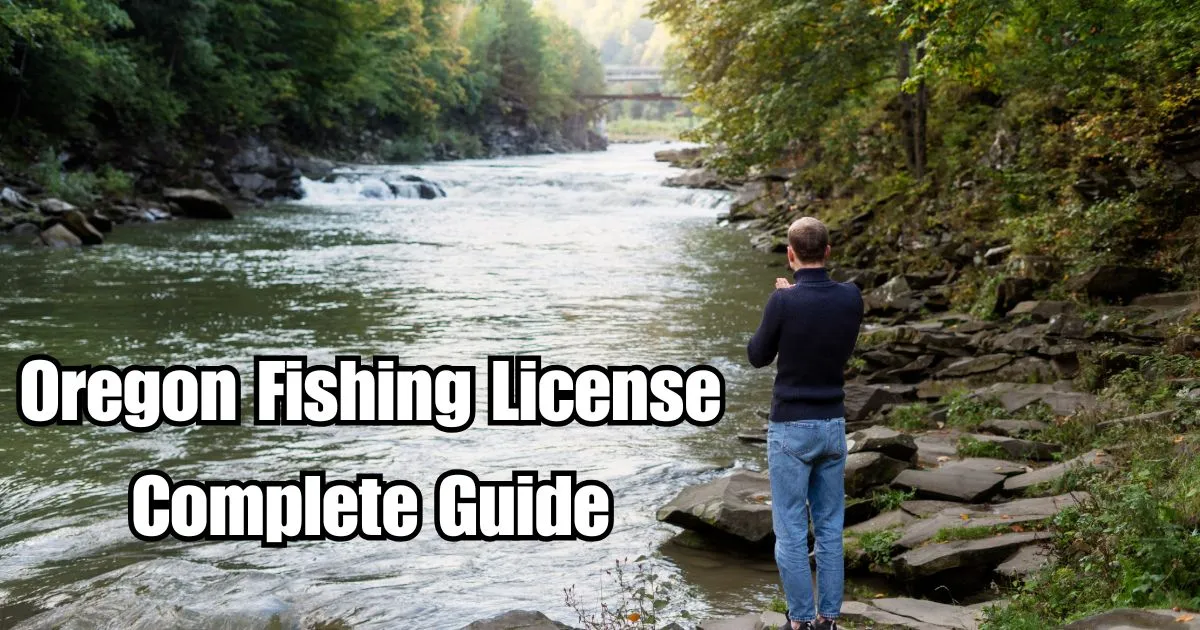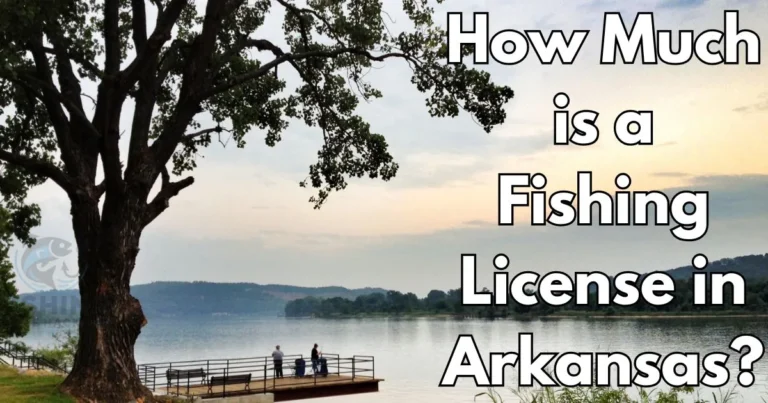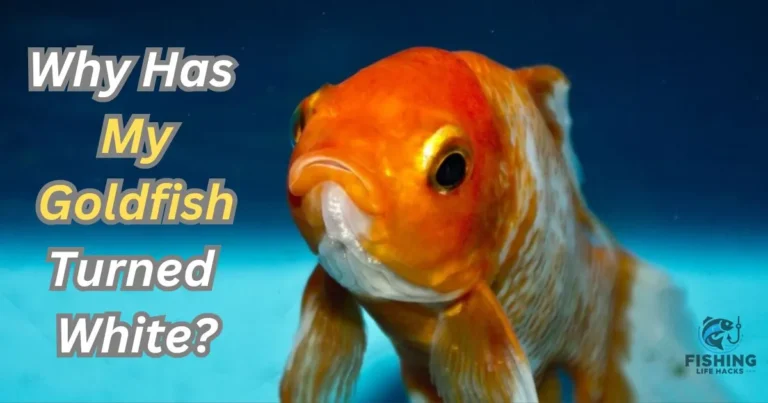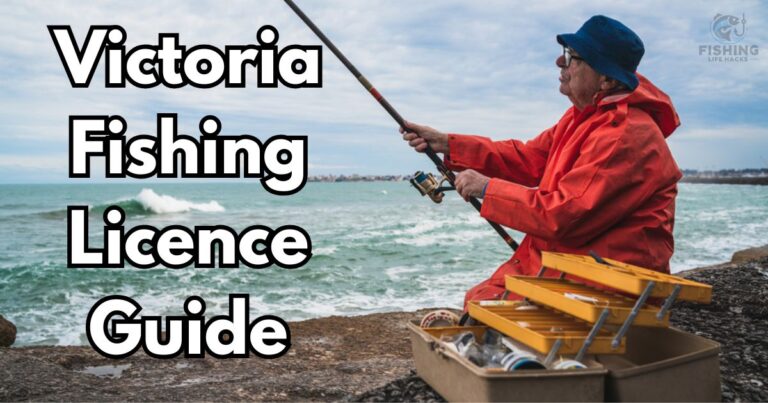Oregon Fishing License: Complete Guide 2024

In Oregon, obtaining a fishing license is essential for anyone wishing to fish in the state’s abundant rivers, lakes, and coastal waters. Whether you are a resident or a visitor, knowing the requirements and process for getting a fishing license is crucial for ensuring compliance with state regulations. Oregon offers a variety of fishing licenses depending on your residency status, the duration of your stay, and the type of fishing you plan to do.
This section will cover the details of who needs a fishing license, how to obtain one, and other important regulations that every angler should be aware of before heading out on their fishing adventure. From understanding the costs to learning about exemptions, this guide will help you navigate the licensing process seamlessly.Whether you are planning a day trip or an extended fishing excursion, getting the right fishing license is the first step to enjoy Oregon’s incredible fishing opportunities responsibly and legally.
Who Needs a Fishing License in Oregon?
In Oregon, anyone who is 12 years of age or older is generally required to obtain a fishing license if they plan to fish in the state’s waters. However, there are specific regulations that differentiate between residents and non-residents, as well as different license types depending on the duration and fishing activity. Understanding who needs a fishing license and the specific requirements for residents versus non-residents will ensure that anglers comply with Oregon’s fishing laws.
Residents: Oregon residents are those who have lived in the state for at least six months and intend to remain there. Residents can obtain a variety of fishing licenses, including annual or short-term options, at a reduced cost compared to non-residents.
Non-Residents: Individuals who live outside of Oregon are considered non-residents and are required to pay higher fees for their fishing licenses. Non-residents also have the option of purchasing one-day or short-term licenses if they plan to fish for only a limited time.
Both residents and non-residents must be aware of additional rules based on the specific area they are fishing in, as regulations may vary across Oregon’s diverse ecosystems. Understanding who is eligible for a license and the type of license needed is the first step in ensuring an enjoyable and legal fishing experience in Oregon.
Fishing License Costs in Oregon
The cost of an Oregon fishing license depends on several factors, including your residency status, the type of fishing you intend to do, and the duration of your license. Below is a detailed breakdown of the costs for both residents and non-residents:
For Residents
- Annual Fishing License: This is the most common option for residents who fish regularly. The cost typically ranges from $40 to $45, depending on the specific license type.
- Short-Term Licenses: If you’re a resident looking for a temporary option, short-term fishing licenses are available. These can be purchased for 1, 3, 7, or 30 days and cost anywhere from $20 to $30.
- Special Licenses: Residents may also need additional permits for specific types of fishing, such as for salmon, steelhead, or trout. These licenses are typically priced between $10 and $25, depending on the species and fishing area.
For Non-Residents
- Annual Fishing License: Non-residents can expect to pay more for an annual license, typically ranging from $100 to $120.
- Short-Term Licenses: Non-residents can choose from 1-day, 3-day, or 7-day fishing licenses, with costs ranging from $20 to $50.
- Additional Species Permits: Like residents, non-residents may need extra permits for certain types of fishing. Prices for these permits generally range from $15 to $30.
Additional Costs
- Combination Licenses: If you’re interested in both fishing and hunting, Oregon offers combination licenses, which can save money if you plan to do both activities. These licenses typically cost around $150 for residents and $250 for non-residents.
- Youth and Senior Discounts: Discounted rates are available for youth anglers (under 12) and senior citizens (65+), with youth licenses often being free or discounted.
It’s important to check the Oregon Department of Fish and Wildlife website or authorized vendors for the most current pricing, as these costs can change annually or based on specific regulations.
Exemptions: Who Can Fish Without a License?
While most anglers in Oregon are required to have a fishing license, there are certain exemptions where individuals can fish without one. These exemptions are designed to allow residents and visitors to enjoy fishing in specific circumstances. Here are the key situations where a fishing license is not required:
1. Children under a Certain Age
Oregon allows children under the age of 12 to fish without a license. However, there may be additional rules regarding the type of fish they can catch or the areas where they can fish.
2. Oregon Resident Seniors
Oregon residents aged 70 and older can fish without a license. They may still be subject to certain regulations, such as specific fishing seasons or restricted areas.
3. Free Fishing Days
Oregon offers several “free fishing days” throughout the year, typically in June, when anglers of all ages can fish without a license. These special days are a great opportunity to try fishing without any upfront costs.
4. Disabled Veterans and Active Military Members
Disabled veterans and active-duty military personnel who are stationed in Oregon are exempt from purchasing a fishing license. However, proof of disability or military service may be required.
5. Residents Fishing in Private Waters
Oregon residents fishing on private property (with landowner permission) may not need a license for certain types of fishing, but specific regulations on private land should be checked to ensure compliance.
Additional Fishing Requirements
In addition to obtaining a fishing license, there are other important regulations and permits that anglers must be aware of when fishing in Oregon. These additional requirements are designed to protect the state’s wildlife and ensure sustainable fishing practices. Understanding these rules will help you avoid penalties and contribute to preserving Oregon’s fishing environment.
- Special Permits for Specific Fish Species: Certain species of fish, such as salmon, sturgeon, and steelhead, may require special tags or permits. These permits are often subject to seasonal regulations and quotas. It’s important to check for any specific requirements for the species you plan to target.
- Fishing Seasons and Limits: Oregon has designated fishing seasons for various species, and fishing outside of these periods may be prohibited. Additionally, there are limits on the number of fish you can catch per day. Make sure you are aware of the daily bag limits and size restrictions for the area you are fishing.
- Fishing Areas and Zones: The state is divided into different fishing zones, each with its own set of rules regarding fishing methods, species, and seasons. Ensure you are fishing within the designated zones and following the rules specific to that area.
- Fishing Gear Restrictions: Oregon may have restrictions on the types of fishing gear allowed in certain areas, including bait, hooks, and nets. Some areas may require the use of specific types of fishing rods or prohibited certain methods like spearfishing.
Where to Purchase an Oregon Fishing License
Purchasing an Oregon fishing license is simple and can be done through various convenient methods. Whether you prefer buying your license online, at a retail location, or in person, Oregon offers several options to accommodate all anglers.
- Online
The easiest and most popular way to purchase an Oregon fishing license is through the Oregon Department of Fish and Wildlife (ODFW) website. The online portal allows you to purchase, renew, and print your license from the comfort of your home. You can choose from a range of licenses, including annual, multi-day, or one-day permits, depending on your fishing plans. - ODFW Offices
You can also buy your fishing license directly from ODFW offices located across Oregon. These offices provide additional information on fishing regulations and are a great resource for first-time buyers. - Retail Outlets
Numerous authorized retailers throughout Oregon sell fishing licenses. These include sporting goods stores, outdoor outfitters, and even some grocery stores. You can find a list of these locations on the ODFW website. - Mobile App
The ODFW offers a mobile app that allows you to easily purchase and store your fishing license on your smartphone. This digital license is just as valid as a physical one and can be used as proof when fishing. - Fishing Charters and Guides
Some local fishing charters and guide services also sell fishing licenses to their clients, often bundled with the cost of a guided fishing trip. This can be an ideal option for tourists or anglers who prefer a hassle-free experience.
Lost or Stolen License: What to Do?
Losing your Oregon fishing license can be an unfortunate situation, but it’s important to know what steps to take to resolve the issue and continue fishing legally.
Here’s what you should do if your fishing license is lost or stolen:
- Report the Loss or Theft
If you believe your fishing license was stolen, it’s a good idea to report the theft to local authorities. While not required, this provides an official record and can be helpful in case of misuse. - Check for a Digital Copy
Many anglers choose to store a digital version of their fishing license. Check your email or any digital records from the Oregon Department of Fish and Wildlife (ODFW) to see if you have a digital copy of your license that you can use temporarily. - Contact the Oregon Department of Fish and Wildlife
Reach out to the ODFW to inform them about your lost or stolen license. You may need to provide personal details and information about the lost license, such as its type and any identifying features. - Apply for a Replacement License
If you cannot find a digital copy, you will need to request a replacement. You can apply for a replacement fishing license through the ODFW website or by visiting a license vendor. There may be a small fee for this service. - Carry Your Replacement License
Once you receive your replacement license, make sure to carry it with you whenever you go fishing. Always have proof of your valid license to avoid fines or penalties.
License Renewal: What You Need to Know
In Oregon, fishing licenses are typically valid for one year, but it is important to keep track of your renewal dates to avoid fishing without a valid license. Renewal can be done easily online, by phone, or in person at various license retailers. Whether you’re renewing a resident or non-resident license, the process is straightforward, and you can choose between different renewal options based on your fishing needs.
Here are some key points to remember when renewing your Oregon fishing license:
- License Duration: Most fishing licenses in Oregon are valid for 12 months, starting from the date of purchase. Make sure to renew your license before it expires to avoid fines or penalties.
- How to Renew: You can renew your license online via the Oregon Department of Fish and Wildlife (ODFW) website, by phone, or at an authorized retailer. The online option is the quickest and most convenient.
- Renewal Costs: Renewal fees are generally the same as the original cost of the license. The fees may vary depending on your residency status, the type of fishing you plan to do, and whether you’re purchasing a short-term or annual license.
- Automatic Renewal: Some fishing licenses may offer automatic renewal options for ease of use. Check with ODFW for more information on how to set this up.
- Expired License: If your license has expired, you will need to purchase a new one rather than renew it. Be sure to check the expiration date on your license regularly.
Recommended Fishing Charters in Oregon
If you’re looking to enhance your fishing experience in Oregon, booking a guided fishing charter can be an excellent way to ensure a successful and enjoyable trip. Fishing charters offer expert guidance, top-notch equipment, and access to prime fishing spots, making them ideal for both novice anglers and seasoned fishermen. Whether you’re fishing for salmon, trout, or steelhead, Oregon’s diverse waterways provide excellent opportunities for all types of fishing.
Here are some of the top fishing charters in Oregon to consider:
- Gordon’s Generational Guide Service
Specializes in multi-generational fishing experiences, offering personalized trips for families and groups. Known for their friendly service and knowledge of the Oregon waters. - Shirley Catch Guide Service – Portland, OR
Located in Portland, this charter focuses on fishing trips for salmon and sturgeon. The guides are experienced and highly recommended for those looking to fish on the Columbia River. - All Depth Charters
Based in Depoe Bay, this charter offers deep-sea fishing trips and is well-known for its success in catching a variety of fish, including halibut and rockfish. Ideal for anglers looking for an ocean adventure. - Brandon Gray’s Guided Fishing
Offers guided fishing trips across Oregon’s rivers, with a focus on steelhead and salmon. The service is praised for its expert guides and commitment to providing a great fishing experience.
Top Fishing Charters in Portland Area
Portland, Oregon, is a prime location for anglers, offering access to some of the best fishing spots in the Pacific Northwest. Whether you’re a novice or an experienced fisherman, a guided fishing charter can enhance your experience, providing expert advice, local knowledge, and all the necessary gear. Here are some of the top fishing charters in the Portland area:
1. Gordon’s Generational Guide Service
Known for its family-friendly approach, Gordon’s Generational Guide Service offers personalized fishing trips on the Willamette and Columbia Rivers. Their knowledgeable guides cater to both beginners and seasoned anglers, ensuring a memorable fishing experience.
2. Shirley Catch Guide Service (Portland, OR)
Specializing in salmon and steelhead fishing, Shirley Catch Guide Service provides expert guidance on local rivers. Their trips are designed to maximize your chances of catching trophy fish, and they offer both half-day and full-day trips.
3. All Depth Charters
All Depth Charters offers a variety of fishing trips targeting a wide range of fish species, including salmon, sturgeon, and bottom fish. With a focus on safety and fun, their experienced guides ensure an exciting and rewarding trip.
4. Brandon Gray’s Guided Fishing
Brandon Gray’s Guided Fishing specializes in professional river and ocean fishing expeditions. Their personalized tours ensure that you will be fishing the best spots at the right time, whether you’re targeting salmon, steelhead, or other local species.
Frequently Asked Questions
Conclusion
Obtaining an Oregon fishing license is a crucial step in ensuring a safe and enjoyable fishing experience in one of the most beautiful and fish-rich regions in the United States. Whether you’re a resident or non-resident, the process is straightforward, and the costs vary depending on your status and the type of fishing you plan to do. It’s important to be aware of the exemptions and additional requirements for certain fishing activities, as well as the renewal process and how to handle a lost license.






